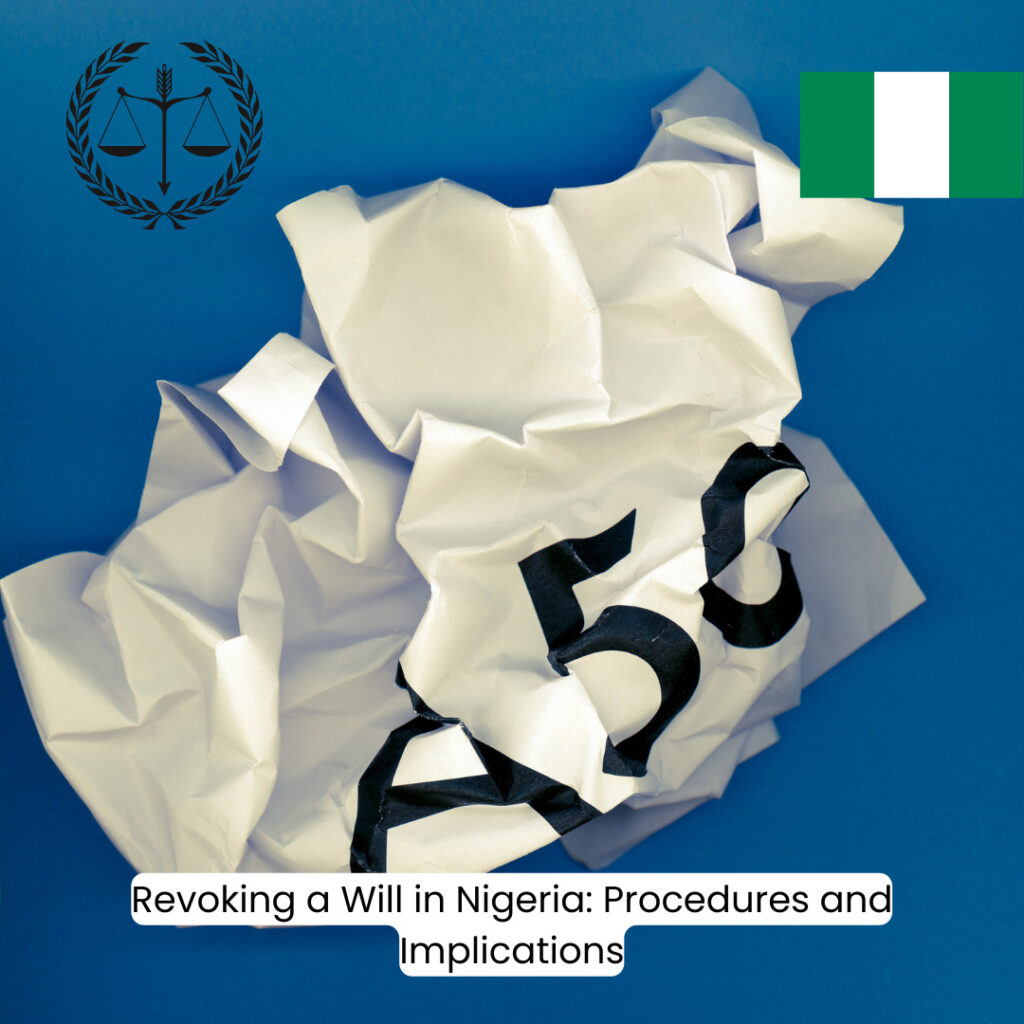Revoking a Will in Nigeria: Procedures and Implications
Writing a will is a crucial step in ensuring that your assets and properties are distributed according to your wishes after your passing. However, circumstances change, and there might come a time when you need to revoke or amend your existing will. In Nigeria, the procedures for revoking a will are governed by specific laws and regulations, and it’s essential to understand these processes to ensure a smooth transition. In this article, we will explore the procedures and implications of revoking a will in Nigeria.

Understanding the Basics of a Will
A will is a legal document that outlines your wishes regarding the distribution of your assets, properties, and personal belongings after your death. It allows you to appoint an executor who will oversee the distribution process according to your instructions. In Nigeria, the Wills Act of 1837, which is still applicable in many states, regulates the making, revoking, and execution of wills.
Reasons for Revoking a Will
There can be several reasons why a person may want to revoke a previously made will:
- Change in Circumstances: Life is dynamic, and circumstances change. You may acquire new assets, sell existing ones, or have new family members. These changes might necessitate a revision of your will.
- Change in Beneficiaries: If there’s a change in your relationships or family structure, you may want to alter your beneficiaries. This could be due to marriage, divorce, birth, or estrangement.
- Executor Change: The person you initially appointed as the executor may no longer be suitable for the role. This could be due to various reasons such as their unavailability or changed circumstances.
Procedures for Revoking a Will
To revoke a will in Nigeria, certain steps need to be followed:
- Draft a New Will: The most common way to revoke a will is by creating a new one. This new will should explicitly state that it revokes all previous wills and codicils (amendments to a will).
- Destroy the Old Will: It’s not enough to create a new will; you must also physically destroy the old will to prevent any confusion or misinterpretation. Burning, tearing, or otherwise defacing the old will can demonstrate your intention to revoke it.
- Express Revocation Clause: Within your new will, include a clause that explicitly states the revocation of all previous wills and codicils. This clause leaves no room for ambiguity and ensures that your intentions are clear.
- Proper Execution: Ensure that your new will follows the legal requirements for execution, including signatures and witnesses. Improperly executed wills can be challenged in court, leading to unintended consequences.
Implications of Revoking a Will
Revoking a will has several implications that should be carefully considered:
- Intention Clarity: Revoking a will ensures that your current intentions are accurately represented, preventing any potential confusion or disputes among your beneficiaries.
- Legal Validity: A revoked will holds no legal weight. This emphasizes the importance of drafting a new will that adheres to legal requirements.
- Distribution Changes: The revocation of a will directly affects the distribution of your assets. Ensure that your new will reflects your updated wishes.
- Challenges and Disputes: While revoking a will is your prerogative, it might lead to challenges or disputes from disappointed beneficiaries or interested parties. A well-drafted will can help minimize the risk of such disputes.
In conclusion, revoking a will in Nigeria is a process that requires careful consideration, proper legal execution, and a clear understanding of the implications. Life’s changes can necessitate revisions to your estate planning documents, and it’s crucial to consult legal professionals who specialize in estate law to ensure that your wishes are accurately represented and legally enforceable. By following the appropriate procedures and understanding the implications, you can ensure that your assets are distributed according to your current wishes while safeguarding against potential disputes